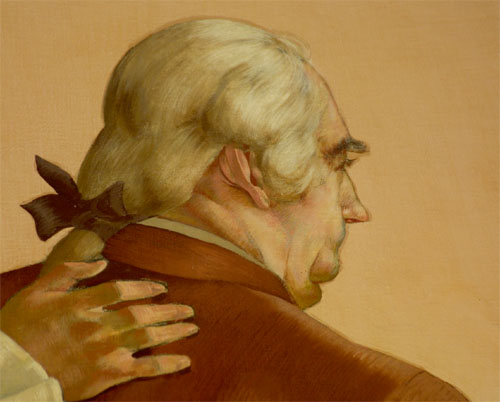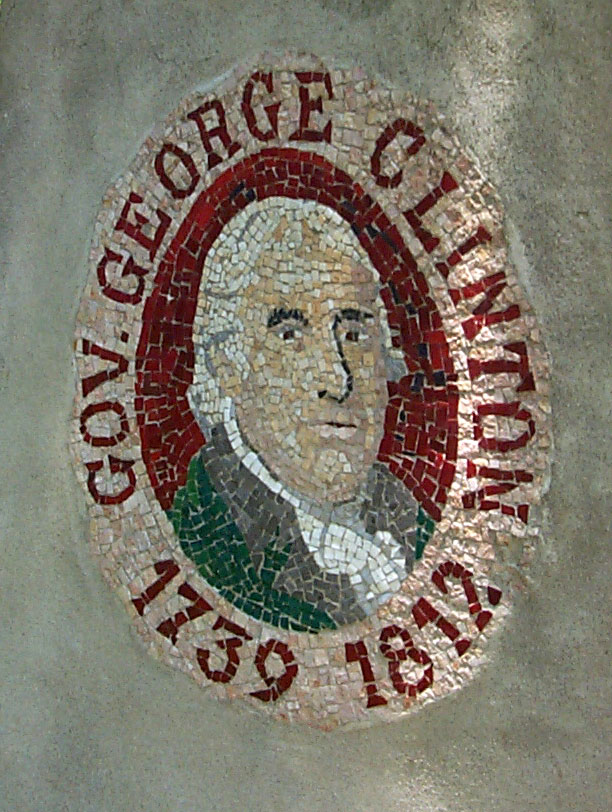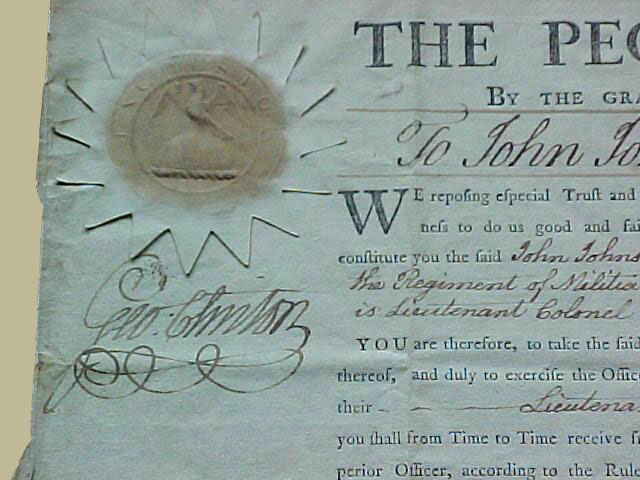 |
|
|
 |
|
|

|
|
|
| ||||||||||||
Governor George Clinton |
|
|
| Revolutionary War general, statesman and lawyer George Clinton was elected governor of New York for six successive terms, 1777 to 1795 and was called the Father of New York State. Winning support for the principles of the Revolution, Clinton brought an end to Indian problems in the western New York. Born in 1739 in New York Clinton studied law and was elected to the Provincial Assembly in 1768, gaining a reputation as a defender of freedom of speech and the press. Appointed brigadier-general in 1775, Clinton was elected governor in 1777. An early opponent of the Constitution because of his belief in state sovereignty, Clinton was forced by popular demand to agree to its acceptance. Elected governor for the seventh time in 1800, he later became vice-president during the terms of Presidents Jefferson and Madison (1804-1812). Clinton died in Washington, D.C. in 1812. |

|
Mark O. Hatfield, 1997 |
|
George Clinton took office as the nation's fourth vice president on March 4, 1805. He
was the second vice president to serve under Thomas Jefferson, having replaced fellow
New Yorker Aaron Burr whose intransigence in 1800 had nearly cost Jefferson the
presidency. A Revolutionary War hero who had served as governor of New York for two
decades, Clinton seemed an ideal choice to supplant Burr while preserving the New
York-Virginia alliance that formed the backbone of the Republican coalition.
Even though Republican senators may have been relieved to be rid of Burr, the contrast
between their new presiding officer and his urbane, elegant predecessor must have been
painfully apparent when Chief Justice John Marshall administered the oath of office to
Jefferson and Clinton in the Senate chamber. Jefferson offered a lengthy inaugural speech
celebrating the accomplishments of his first term, but Clinton declined to address the
members of Congress and the "large concourse of citizens" present.
Two days earlier, on March 2, 1805, Burr had regaled the Senate with a "correct and elegant" farewell oration so laden with emotion that even Clinton's friend, Senator Samuel L. Mitchill (R-NY), pronounced the scene "one of the most affecting . . . of my life." But when Clinton assumed the presiding officer's chair on December 16, 1805, two weeks into the first session of the Ninth Congress, he was so "weak & feeble" of voice that, according to Senator William Plumer (F-NH), the senators could not "hear the one half of what he says." Clinton's age and infirmity had, if anything, enhanced his value to the president, because Jefferson intended to pass his party's mantle to Secretary of State James Madison when he retired after his second term, yet he needed an honest, "plain" Republican vice president in the meantime. Clinton would be sixty-nine in 1808, too old, Jefferson anticipated, to challenge Madison for the Republican presidential nomination. Clinton had already retired once from public life, in 1795, pleading ill health.
|

|
|
| The re-election of Geo. Clinton is an event auspicious to the great canal-- It now will go thro without the least doubt. I very much wish your people would do something in a similar way & meet us either at Sandusky or Chicago -- Sooner or later it will come to pass -- The day will come when you yourself, Madam at your side, with a blooming little Isaac in her lap, seated in an elegant gondola will in one fortnight glide along from Illinois to Dutchess. My old eyes I think will not -- but other eyes will behold & bless them. Marry my dear child -- Marry in early life -- Marry a respectable amiable young woman: You thereon give a pledge to society that you will never Give Up the political ship. With some experience I announce "That celibacy is good but marriage is better." |
|
|
|
The Clinton family dominated New York politics during the first half-century of
its statehood. The founder of the family was Charles Clinton, b. 1690, d. Nov.
19, 1773, an Irish immigrant who in 1731 settled Little Britain in Ulster (now
Orange) County. A judge, militia officer, surveyor, and land speculator, he had
two famous sons, James and George.
James Clinton, b. Aug. 9, 1733, d. Dec. 22, 1812, earned distinction as an officer during the French and Indian War and the American Revolution. George Clinton, b. July 25, 1739, d. Apr. 20, 1812, was an undistinguished officer in the same wars but was a brilliant politician. After serving as assemblyman and member of the Provincial and Continental congresses, he was elected governor of New York seven times between 1777 and 1804. An ardent Anti-Federalist, he was the author of seven letters signed "Cato" in the New York Journal opposing ratification of the federal CONSTITUTION. He later served as VICE-PRESIDENT (1805-12) under Thomas JEFFERSON and James MADISON. George Clinton's achievements as revolutionary governor earned him the title "father of the state." James's son, DeWitt Clinton, b. Mar. 2, 1769, d. Feb. 11, 1828, served as his uncle's private secretary from 1790 to 1795 and then embarked on a similar career. In addition to a brief term (1802) in the U.S. Senate, DeWitt held every major elective office in New York between 1797 and 1828--assemblyman, senator, mayor of New York City, lieutenant governor, and governor. He was a philanthropist and patron of the arts and science and, as canal commissioner, championed (1825) construction of the Erie and Champlain canals. |

![]() Copyright © 2003, InterMedia Enterprises
Copyright © 2003, InterMedia Enterprises